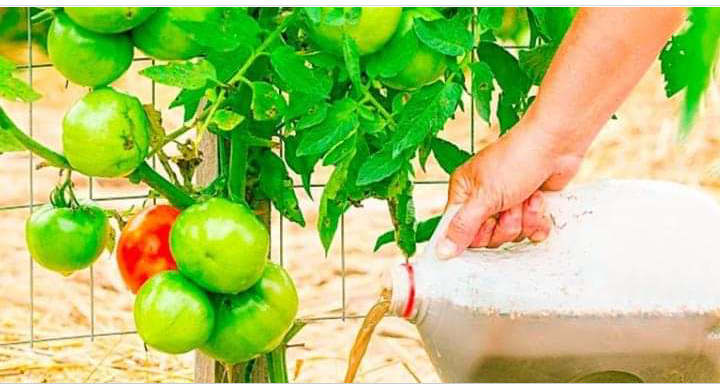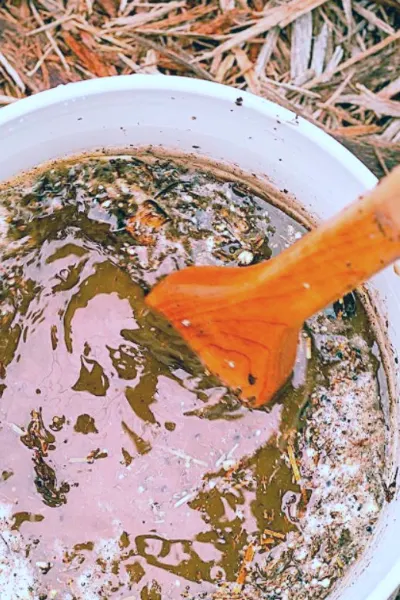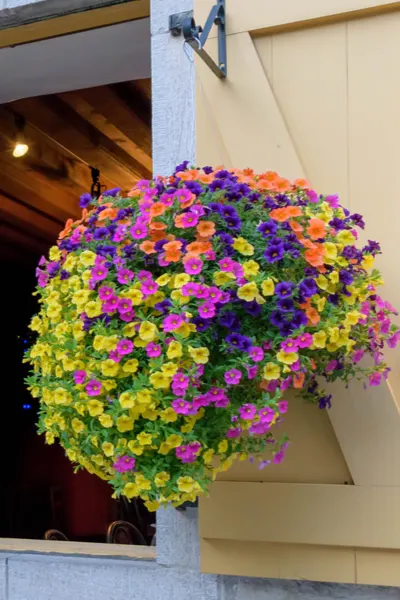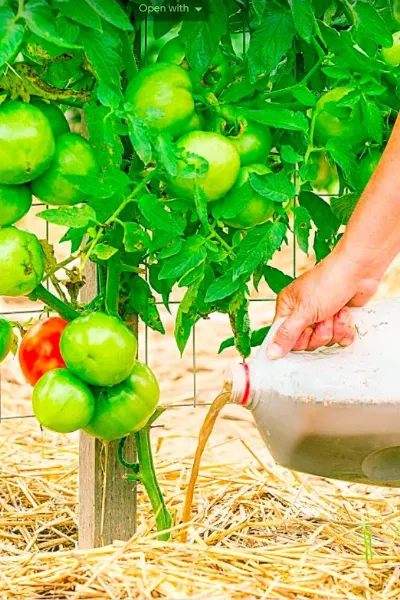
Making And Using Compost Tea.
Today’s article is all about making and using compost tea.
Or, as we like to call it when fertilizing our plants with it, pure liquid gold!
Made easily from just two simple ingredients (compost & water), compost tea is the perfect, all natural “miracle-growing” liquid.
Not only can it power flowers and vegetable plants, but shrubs and trees too.
But perhaps best of all, if you make your own compost, you can create this powerful organic fertilizer for free!
How Compost Tea Works
Compost is teeming with all-natural, plant-boosting nutrients.
But when soaked in water, it’s nutrients leech into a liquid form.
One that can be applied easily, and that works fast to naturally boost a plant’s growth.
Compost tea works its magic by feeding plants in two unique ways. Not only does it supply nutrients via a plant’s roots, but also through the leaves in a process known as foliar absorption.
Below is a step by step look at how to make your own incredible compost tea. And even better, how and when to use it to power up your vegetable garden, flowerbeds, hanging baskets and potted plants!
How To Make Compost Tea
We have been using the simple formula below for years to create a powerful and highly effective compost tea from our homemade compost. The best part of all, it doesn’t require fancy pumps or percolating equipment.
In fact, all it requires is a 5 gallon bucket, water, a strainer, a stir stick and a few shovel fulls of finished compost.
The Method
Start by filling a 5 gallon bucket about 1/3rd full of compost. If you don’t have readily available compost, you can also use commercially bagged compost as an alternative. (Product Link : Charlies Bagged Compost)
Next, fill the bucket to within an inch or two of the top with water. Be sure to use well water or distilled water to avoid chlorine and other chemicals. (we use the water straight from our rain water collection tanks)

Stir the compost a few times each day to help infuse the nutrients into the water, and to provide oxygen as well.
Once you have filled the bucket with both, stir up the mix for a few minutes.
This aeration of the water and stirring of the compost helps release the compost’s nutrients into the water – a process similar to dunking a tea bag to release more tea into your drink.
Continue stirring a few times each day over the course of a five day period. After five full days, the water / compost mixture will be charged full of nutrients, and ready to go. (see video below for our method)
Next, simply strain the compost mixture using a mesh screen or strainer. Toss the used compost back into your pile to recharge, keeping the liquid as your finished compost tea.
And all you need to do to make this magic is make your own homemade compost!
Where & How To Use
Hanging Baskets & Containers
Compost tea is sensational for keeping container and hanging basket plants thriving! Simply water with the tea every 5 to 7 days to give a small boost to plants all summer long.

Vegetable Plants
Compost tea is the perfect all-natural fertilizer for vegetable plants. When using in the garden, apply every two weeks once transplants or seed crops have become established.
Water each transplant with a quarter gallon of compost tea, but be sure to soak the leaves a bit as you do. This will help the plants absorb the nutrients via the foliage as well.
As when watering, it’s best to apply compost tea early in the day or in the early evening when the sun is not at full force.
Unfortunately, watering or fertilizing during the heat of the day can scorch plants with the sun’s rays.

Nutrients are absorbed both by a plant’s roots and through it’s foliage.
Using Compost Tea In Flower Beds
In addition to vegetable plants and container plants, compost tea is a great boost for annual and perennial flower beds too. Just as in the garden, apply every few weeks to keep plants supplied with a steady stream of nutrients.
Compost tea can be stored and used for weeks, but should be kept closed and out of direct sunlight to avoid evaporation.
Here is to powering your plants this year with compost tea – Happy Gardening, Jim and Mary.
As always, feel free to email us at thefarm@owgarden.com with comments, questions, or to simply say hello! You can sign up for our free email list in the subscribe now box in the middle of this article. Follow us on Facebook here : OWG Facebook. This article may contain affiliate links.
